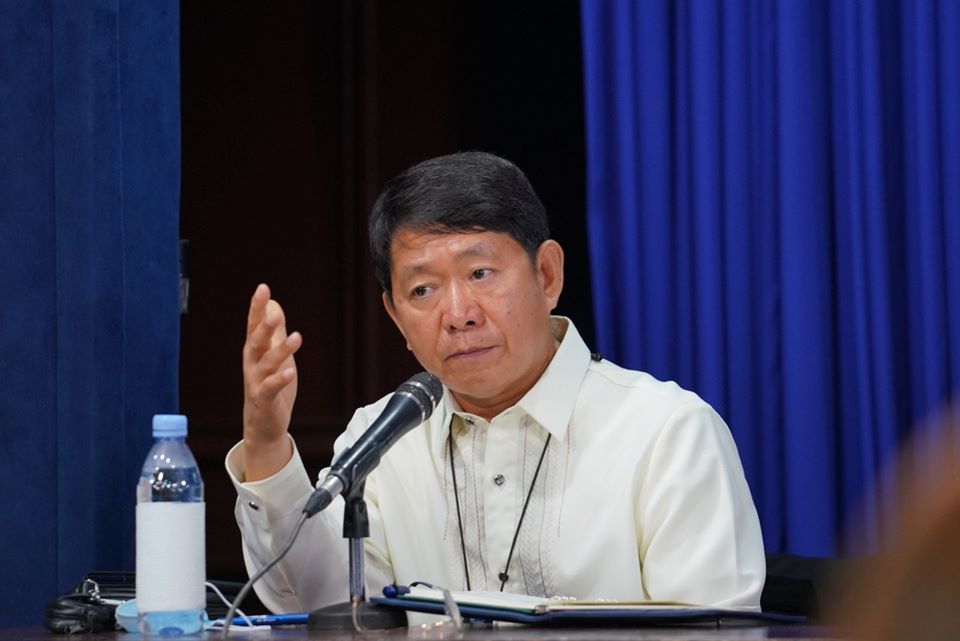NSC takes lead in adopting PH policy on national security
At A Glance
- The National Security Council (NSC) vowed to take the lead in the effective implementation of the Philippine National Security Policy (NSP) 2023-2028.
- The NSP 2023-2028 contains a list of guidelines which seeks to address all of the country's national security needs and concerns within the next five years.
- To implement the policy document, President Ferdinand Marcos Jr., through Eexecutive Order No. 37, directed all national government agencies and instrumentalities, including government-owned and controlled corporations (GOCCs) and local government units (LGUs), to adopt the NSP in the formulation and implementation of their security-related strategies and programs.
The National Security Council (NSC) vowed to take the lead in the effective implementation of the Philippine National Security Policy (NSP) 2023-2028, a list of guidelines which seeks to address all of the country’s national security needs and concerns within the next five years.

National Security Adviser (NSA) Eduardo Año said the NSP 2023-2028 is the Philippines’ third national security policy document which contains the guiding principles and interests for the protection and promotion of the country’s national security.
He praised President Ferdinand “Bongbong” Marcos Jr. for issuing Executive Order (EO) No. 37 which contains the provisions for the adoption and implementation of the NSP 2023-2028. EO No. 37 was signed by Marcos on August 10 and released to the public two days later.
“Congruent with the President’s vision of a free, united, secure, and prosperous Philippines, the National Security Council (NSC) crafted the NSP 2023-2028 to provide the guidelines for addressing our national security needs and concerns in the next five years highlighting the crucial connection between security and development,” Año noted.
He explained that the NSP outlines the policy objectives and priority areas to guide the government in its efficient allocation of finite resources and capitalization of its core strengths for the attainment of a peaceful and prosperous nation.
Año stressed that the NSP will be “vigorously pursued” across all government agencies with the NSC taking the lead in mainstreaming the policy not only in government agencies but across the society.
He said the NSP aims to complement the medium-term Philippine Development Plan 2023-2028, as well as contribute to the realization of the long- term national dream of a “Matatag, Maginhawa, at Panatag na Buhay” (strong, prosperous and peaceful life) for every Filipino by the year 2040.
He added that the national security goals identified in the NSP were based on an assessment of ever-changing strategic environment.
The NSP 2023-2028 has identified the following as the country’s national security interests: national sovereignty and territorial integrity; political stability, peace, and public safety; economic strength and solidarity; ecological balance and climate change resiliency; national identity, harmony, and culture of excellence; cyber, information, and cognitive security; and regional and international peace and solidarity.
It also identified the following as the country’s 15-point National Security Agenda:
-Defense and Military Security;
-Maritime, Air, Land and Space Security; 3.
-Border Security;
-Political Security;
-Public Safety, Peace and Justice;
-Health and Biodiversity;
-Economic, Infrastructure and Financial Security;
-Food, Nutrition and Water Security;
-Energy Security;
-Transportation and Port Security;
-Moral and Spiritual Cohesiveness;
-Socio-Cultural Cohesiveness;
-Ecological Balance and Climate Change Resiliency;
-Cyber, Information and Cognitive Security; and
-Regional and International Peace and Stability.
To implement the policy document, Marcos, through EO No. 37, directed all national government agencies and instrumentalities, including government-owned and controlled corporations (GOCCs) and local government units (LGUs), to adopt the NSP in the formulation and implementation of their security-related strategies and programs.
“There is a need for all national security-related strategies, along with the plans and programs of all national government agencies and instrumentalities to be aligned with the NSP 2023-2028. This alignment is vital for the successful whole- of-government and whole-of-society implementation of the policy document,” Año said.
EO No. 37 further stated that the NSC Secretariat, through the NSA, shall serve as the principal body for the monitoring of the implementation of the NSP 2023-2028. The monitoring will be conducted by coordinating with various national government agencies and instrumentalities, GOCCs, and LGUs.
Año underscored the NSC’s commitment to the effective implementation of the NSP which now serves as the Philippines' roadmap in ensuring that the country's “sovereignty, territorial integrity, national interests, and the well-being of its people and institutions are preserved, protected, and enhanced.”